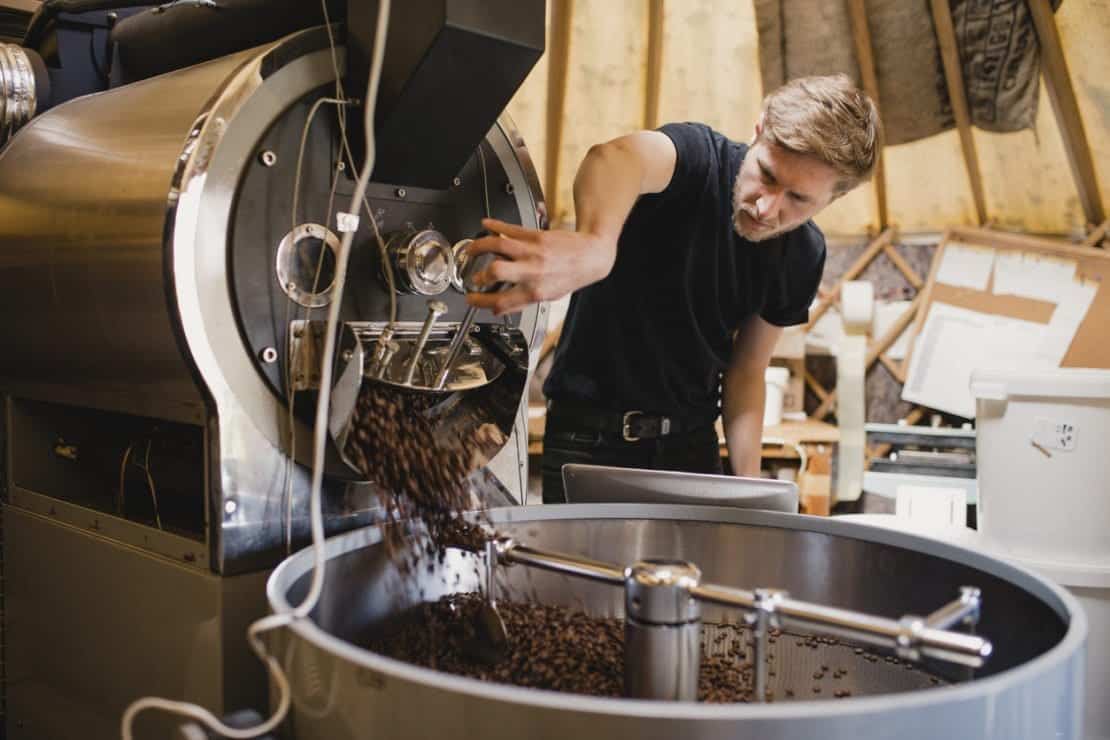8 Ways ERP Systems Benefit the Food and Beverage Industry

It’s fair to say that businesses operating in the food and beverage industry face a greater array of challenges than those in other sectors. From strict regulatory requirements to a highly complex and competitive supply infrastructure – food and drink manufacturers must employ smart, impactful tactics if they’re to remain relevant and profitable within their market space.
While ERP (enterprise resource planning) software offers benefits for all businesses, it’s particularly useful for those in the food and drink industry. That’s because it provides a range of useful features and functions that are invaluable when managing perishable stock – from batch tracking and traceability, to predictive stock management, QA monitoring and warehousing applications.
Sceptical? In this guide, we’re taking a closer look at the benefits ERP software can bring to the food and beverage industry, so you can decide if it’s the right solution for your business.
1. Compliance and Regulation
Regulatory compliance within the food industry is notoriously stringent, and rightly so. It’s also among the most rapidly evolving, with new and emerging regulations keeping food manufacturers on their toes when it comes to compliance.
Staying abreast of changing regulations and trends can be challenging. Food and beverage ERP software that is well-managed can make safeguarding compliance easier, aiding transparency and stock management throughout your supply chain.
2. Stock Management and Tracking
The efficient management of perishable stock is something of a juggling act. Ensuring that goods reach consumers or stockists in a fresh, usable condition is essential for food and beverage suppliers, and this becomes more challenging when profit and cash flow are on the line.
An ERP system simplifies perishable stock management, increasing traceability and easing the management of sell-by-date items. With in-built tools such as batch tracking and predictive stock management, such software makes developing a watertight product cycle a sustainable and viable practice.

3. Mobility and eCommerce Capabilities
Shifting consumer demands coupled with a digital-centric marketplace mean that businesses in all sectors need to reassess and adjust to changing work practices. This extends to the food and beverage sector, where eCommerce and mobility are becoming increasingly common as a means of aiding flexibility and efficiency.
Modern ERP software supports multi-device access, so you and your team can work effectively across desktop and mobile devices, as well as cloud-connected equipment. This not only improves efficiency and flexibility, but can help in other areas of the business too – from responsive customer service to simpler cross-departmental collaboration.
4. Data Management
One of the key benefits of ERP software is a centralised database, which is easily accessed by all relevant business functions. From warehousing and logistics to marketing, sales and quality control – all areas of your business benefit from ready access to data, aiding efficiency and ensuring that no opportunities go begging.
Of course, in the food industry specifically, simple data access makes it considerably easier to monitor and track perishable stock throughout the supply chain. With all departments able to access real-time stock data, it becomes much easier to safeguard against waste and surplus stock.
5. Consistency and Quality Control
Maintaining quality is essential in the food manufacturing arena. With future sales and consumer advocacy on the line, food and drinks brands invest a great deal of time and resources into quality control and management – ensuring that the majority of their end products meet expectations.
But with all that said, effective quality management is no easy task. From raw material to packing, manufacturers must carefully manage food products throughout the supply chain, so consistency is key at every stage. An ERP system can help with this, providing a means of tracking and monitoring quality at every stage of a product’s lifecycle.

6. Customer Service
Improving and maintaining customer service is vital in the food industry, where competition is fierce, and trends change rapidly. Customers want to buy from brands that offer both high-quality products and excellent service – something that requires a considered approach and a careful balance.
It may surprise some to hear that an ERP platform can help enormously with maintaining customer service. When integrated with a CRM (customer relationship management) module, the software helps unify and manage customer data, transactions and interactions – streamlining communication and making it easier to log queries and respond to individual requests.
Click here to learn more about ERP and CRM
7. Decision-making
Effective decision-making hinges on up-to-date, real-time data being available to the right people at the right time. An ERP system affords this certainty, reducing workflow bottlenecks and facilitating improved process management across the food industry supply chain.
Data is an invaluable asset in the hands of decision-makers at all levels. Whether on the factory floor, within marketing teams or in product buying; the intelligence and insights which can be gleaned from up-to-date data can help businesses seize opportunities, avoid pain points and make effective decisions that help drive the organisation forward.
8. Competitive Edge
As touched on earlier, the food and beverage industry is highly competitive, with familiar names and emerging brands jostling for their share of the market. That means businesses must employ a range of tactics to one-up the competition – and investing in ERP software is, for many, a highly effective strategy.
At every level, a modern ERP system can be an invaluable tool in your arsenal. Offering the ability to automate processes and activities which other brands do manually, it can lead to improvements in all areas of the business – providing an invaluable competitive edge in this frenetic market space.

So, there you have it, eight recognised ways ERP systems can benefit food and drink businesses. And it isn’t just this sector – the software is advantageous for all sorts of organisations, boosting efficiency and lending itself to a range of unique, industry-specific applications.
Want to learn more about how ERP services could help your business achieve its goals? We have proven ERP expert consultants at JS3 Global that are happy to help. With years of industry experience, they can advise on the technology and solutions that are right for you. For more information or to speak with our specialists, call us on 0161 503 0866 or email us at enquiries@js3global.com.